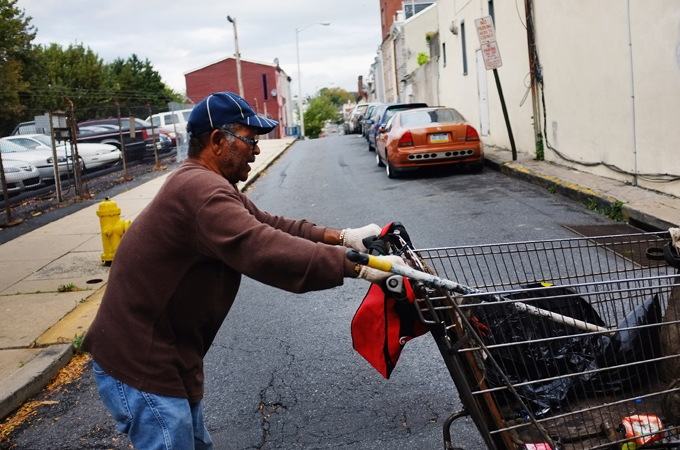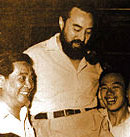1. Ever since the Europeans and this includes the Americans, lost to the Eastern countries in the manufactured goods markets, they have switched to the financial market. Through the many products they created in this market they seem to be able to grow and maintain their wealth and prosperity as shown by such indices as the GDP and Per Capita income.
2. But the business is spurious. The financial market is basically about gambling. Ever since America decided that the market should regulate itself, that there should be less Government, all kinds of unacceptable practices have been allowed. Short selling expanded from shares to commodities to currencies, Banks lend more money than they have and allowed highly leveraged borrowings by hedge funds and currency traders. They indulge in sub-prime loans, securing these imprudent lending by mortgaging and insurance.
3. In real business the costs in the European countries are unduly high because of high salaries and wages for workers’ pensions, bonuses, short working hours, long paid holidays, unemployment and other social benefits. The standard of living may be high but European products cannot compete with the products of the East in world markets.
4. The currency trading today, for example is said to be worth four trillion dollars a day, equal to the total productivity of Germany in one year. Whereas producing goods and services by Germany spins off all kinds of supporting and other businesses as well as millions of jobs, currency trading spins off no businesses nor create any real jobs. All the dealing involves only the entry of figures in bank books. The earnings are real enough and can contribute to GDP and Per Capita growth. But the picture of economic growth indicated by these indices is false as the wealth belongs to a very small percentage of the population.
5. The sums involved are however huge, running into hundreds of billions and even trillions of dollars. When the bottom fell out, the losses are equally huge, sufficient to bankrupt even the biggest banks. Even countries can go bankrupt.
6. When you lose money, you become poor. Countries are the same. When they lose money or they borrow beyond their means and cannot pay, they become poor.
7. The problem is an unwillingness to admit that they, the Europeans, the Americans, the icons of the free market and economic prosperity are now poor. As a result all the manoeuvres so far are aimed at staying rich, at maintaining a lifestyle that is untenable.
8. The only real way out is to accept a lifestyle that is associated with lower incomes. But the people are demanding to live the rich life they were used to before. The austerity programs are rejected with demonstrations and strikes. And these simply aggravate the situation.
9. If wages and salaries as well as bonuses and other perks are lowered, then the production of goods and services by the workers would cost less. The goods will be able to compete again in the markets against those of the East. Real businesses would then be able to be resuscitated.
10. At the same time the financial market should be curbed. Operations out of tax havens should not be allowed and all accounts must be submitted to the authorities. Currencies should be pegged to a new independent trading currency based on a specific amount of gold or other precious metal. The fluctuation in value would be minimal, making doing business less uncertain.
11. With the lower cost of production there will be no necessity to outsource in Asia. The industries of Europe would be revived and contribute towards overcoming unemployment and early settlement of debts. Real wealth would be generated.
12. The Europeans also spend far too much on weapons. Research, development and upgrading swallow up huge amounts of money. As the weapons become more sophisticated the costs go up sky high. Where before a fighter plane would cost a million dollars, now they cost 50 to 100 million dollars.
13. Yet these weapons are quite useless in fighting the guerrilla wars they are likely to face. And they dare not have wars with countries with the same military capacities because it would be ruinous for everybody and would probably spell the end of the world.
14. Their military budget contributes to the wastage of funds as the likelihood is that the weapons would never be used for the purpose they are developed, certainly not on the scale they are being prepared for.
15. Everything points towards a new Bretton Woods. The world’s economy has become much more liked and integrated that a new set of monetary, financial and banking system needs to be negotiated and devised, taking into consideration the views and problems of the poor countries as well. There should be no thoughts about hegemony; military, political or economic.
2. But the business is spurious. The financial market is basically about gambling. Ever since America decided that the market should regulate itself, that there should be less Government, all kinds of unacceptable practices have been allowed. Short selling expanded from shares to commodities to currencies, Banks lend more money than they have and allowed highly leveraged borrowings by hedge funds and currency traders. They indulge in sub-prime loans, securing these imprudent lending by mortgaging and insurance.
3. In real business the costs in the European countries are unduly high because of high salaries and wages for workers’ pensions, bonuses, short working hours, long paid holidays, unemployment and other social benefits. The standard of living may be high but European products cannot compete with the products of the East in world markets.
4. The currency trading today, for example is said to be worth four trillion dollars a day, equal to the total productivity of Germany in one year. Whereas producing goods and services by Germany spins off all kinds of supporting and other businesses as well as millions of jobs, currency trading spins off no businesses nor create any real jobs. All the dealing involves only the entry of figures in bank books. The earnings are real enough and can contribute to GDP and Per Capita growth. But the picture of economic growth indicated by these indices is false as the wealth belongs to a very small percentage of the population.
5. The sums involved are however huge, running into hundreds of billions and even trillions of dollars. When the bottom fell out, the losses are equally huge, sufficient to bankrupt even the biggest banks. Even countries can go bankrupt.
6. When you lose money, you become poor. Countries are the same. When they lose money or they borrow beyond their means and cannot pay, they become poor.
7. The problem is an unwillingness to admit that they, the Europeans, the Americans, the icons of the free market and economic prosperity are now poor. As a result all the manoeuvres so far are aimed at staying rich, at maintaining a lifestyle that is untenable.
8. The only real way out is to accept a lifestyle that is associated with lower incomes. But the people are demanding to live the rich life they were used to before. The austerity programs are rejected with demonstrations and strikes. And these simply aggravate the situation.
9. If wages and salaries as well as bonuses and other perks are lowered, then the production of goods and services by the workers would cost less. The goods will be able to compete again in the markets against those of the East. Real businesses would then be able to be resuscitated.
10. At the same time the financial market should be curbed. Operations out of tax havens should not be allowed and all accounts must be submitted to the authorities. Currencies should be pegged to a new independent trading currency based on a specific amount of gold or other precious metal. The fluctuation in value would be minimal, making doing business less uncertain.
11. With the lower cost of production there will be no necessity to outsource in Asia. The industries of Europe would be revived and contribute towards overcoming unemployment and early settlement of debts. Real wealth would be generated.
12. The Europeans also spend far too much on weapons. Research, development and upgrading swallow up huge amounts of money. As the weapons become more sophisticated the costs go up sky high. Where before a fighter plane would cost a million dollars, now they cost 50 to 100 million dollars.
13. Yet these weapons are quite useless in fighting the guerrilla wars they are likely to face. And they dare not have wars with countries with the same military capacities because it would be ruinous for everybody and would probably spell the end of the world.
14. Their military budget contributes to the wastage of funds as the likelihood is that the weapons would never be used for the purpose they are developed, certainly not on the scale they are being prepared for.
15. Everything points towards a new Bretton Woods. The world’s economy has become much more liked and integrated that a new set of monetary, financial and banking system needs to be negotiated and devised, taking into consideration the views and problems of the poor countries as well. There should be no thoughts about hegemony; military, political or economic.


















